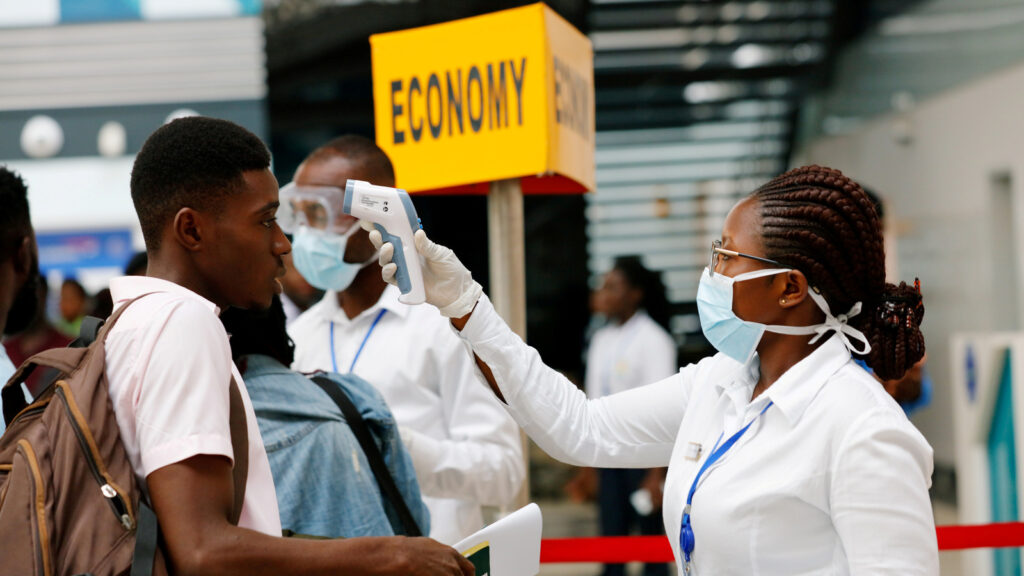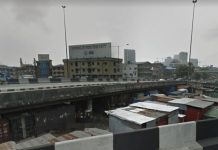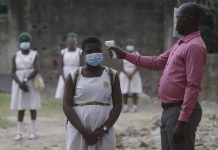
Africa Press-Nigeria:
LAGOS, Nigeria – After President Donald Trump touted an anti-malaria drug called chloroquine as a possible treatment for coronavirus, thousands of Nigerians started taking the medicine, some of them overdosing in a rush to “prevent” infection.
In Mali, there is an estimated one ventilator per 1 million people – about 20 in all, according to the Africa Centers for Disease Control and Infection, which serves 31 of Africa’s 54 nations. The devices are critical in helping to prevent the respiratory failure that has contributed to a worldwide coronavirus death toll of more than 23,000.
Kenya, a country of more than 50 million people, has 550 intensive-care-unit beds. Many sub-Saharan nations have few medical workers; some have no isolation wards.
As of March 27, the world’s second-largest and second-most populous continent after Asia had just over 2,600 cases in 46 countries of COVID-19, the disease caused by the new coronavirus, according to the African Union, a pan-African organization that supports political and economic integration among its 55 member states that have highly varied populations, geographies, cultures, social mores and economies.
And even as the most modern and well-funded hospitals around the world are bracing for an onslaught of cases that will require hard-to-get life-saving equipment, public health officials worry that Africa’s relatively weak health systems, already disproportionately affected by Ebola, HIV, tuberculosis and other infectious diseases, could be overwhelmed. This could further compound problems in a part of the world that has long grappled with conflict, humanitarian disaster and infrastructure inadequacies.
Africa’s plight has grabbed little attention amid mounting global medical emergency scenarios stretching from Asia to Latin America despite data released March 25 by the African Union suggesting the continent’s infection trajectory over the first 50 days is similar to Europe’s. There, the coronavirus has deeply taken hold in Italy and Spain and there are more than 12,000 deaths – four times as many as in China, where the outbreak began in December. The U.S. death toll stands at more than 1,300.
“We need global solidarity now,” said Matshidiso Rebecca Moeti, a Botswanan national who is the World Health Organization’s regional director for Africa, in a Thursday online briefing about the unfolding coronavirus situation in Africa. Moeti said that unlike industrialized countries across the world, most African nations have virtually no means to manufacture the medical equipment governments are now rushing to procure.
“We need this help. It’s urgent,” said Moeti.
India’s decision this week to lock down its 1.3 billion people means that about a quarter or more of the world’s population is now living with some form of enforced restrictions on movement and social contact, according to various COVID-19 trackers, such as Oxford University’s “COVID-19 government response gauge” and a manual count by USA TODAY of nations with lockdowns. Like elsewhere, many African nations have closed borders, shuttered schools and houses of worship, and told people to stay inside. They have also tried to adopt the outbreak prevention and management strategies that have proved successful in Asia: testing, tracing and quarantining those who are infected.
But as African countries prepare to battle the coronavirus on a much larger scale, they have far fewer weapons at their disposal than wealthy nations that have mobilized tens of thousands of health workers, dramatically ramped up testing, deepened essential health equipment inventories, deployed well-trained armies to keep order, sought the advice and resources of sophisticated technology sectors, and unveiled trillions of dollars in financial aid and economic rescue plans for businesses and employees.
Olaniyi Ayobami, a doctor at the main hospital in Nigeria’s southwestern city of Ibadan, said that his city “lacks the capacity to even carry out diagnostic tests for the virus,” let alone care for those who fall ill from a disease that can leave those infected with only mild symptoms or require invasive medical interventions.
“We have only one functional ventilator, which is not even in very good condition,” said Collins Anyachi, a physician at a teaching hospital in Calabar, a Nigerian city in Cross River state that borders Cameroon. Anyachi added that fewer than 10 out of the approximately 600 doctors that serve the area’s two million people have access to personal protection equipment, such as face masks and surgical gowns, that can make all the difference in terms of whether medical staff contract the virus.
In South Africa, which has more coronavirus infections than anywhere else on the continent – more than 900 as of March 26 – the government has prohibited all but essential workers from going outside, even for exercise or to walk a dog. Also forbidden: speaking in-person to a neighbor. But crowded townships, where services are basic at the best of times, make it harder for people to observe social distancing measures.
Mary Nxolo, 28, from Khayelitsha, a vast high-density, low-income outlying eastern suburb approximately 20 miles from central Cape Town, said that she was “terrified” about what the government’s restrictions would mean for her family.
“I have an elderly mother, who is on a pension, and three kids. I am the only one earning anything. I don’t even know if I qualify as being an ‘essential worker,’ because I do domestic work … I’m scared I’ll be arrested if I try to go to work,” she said.
South Africa is one of the most medically advanced countries in Africa. Public health officials and hospital administrators say it is likely the best positioned of all African nations to meet the demands of coronavirus. It has about 7,000 intensive-care beds and around 3,000 ventilators, according to Kerrin Begg, a public health specialist who is advising South Africa’s government on the crisis. South Africa has 60 million people.






